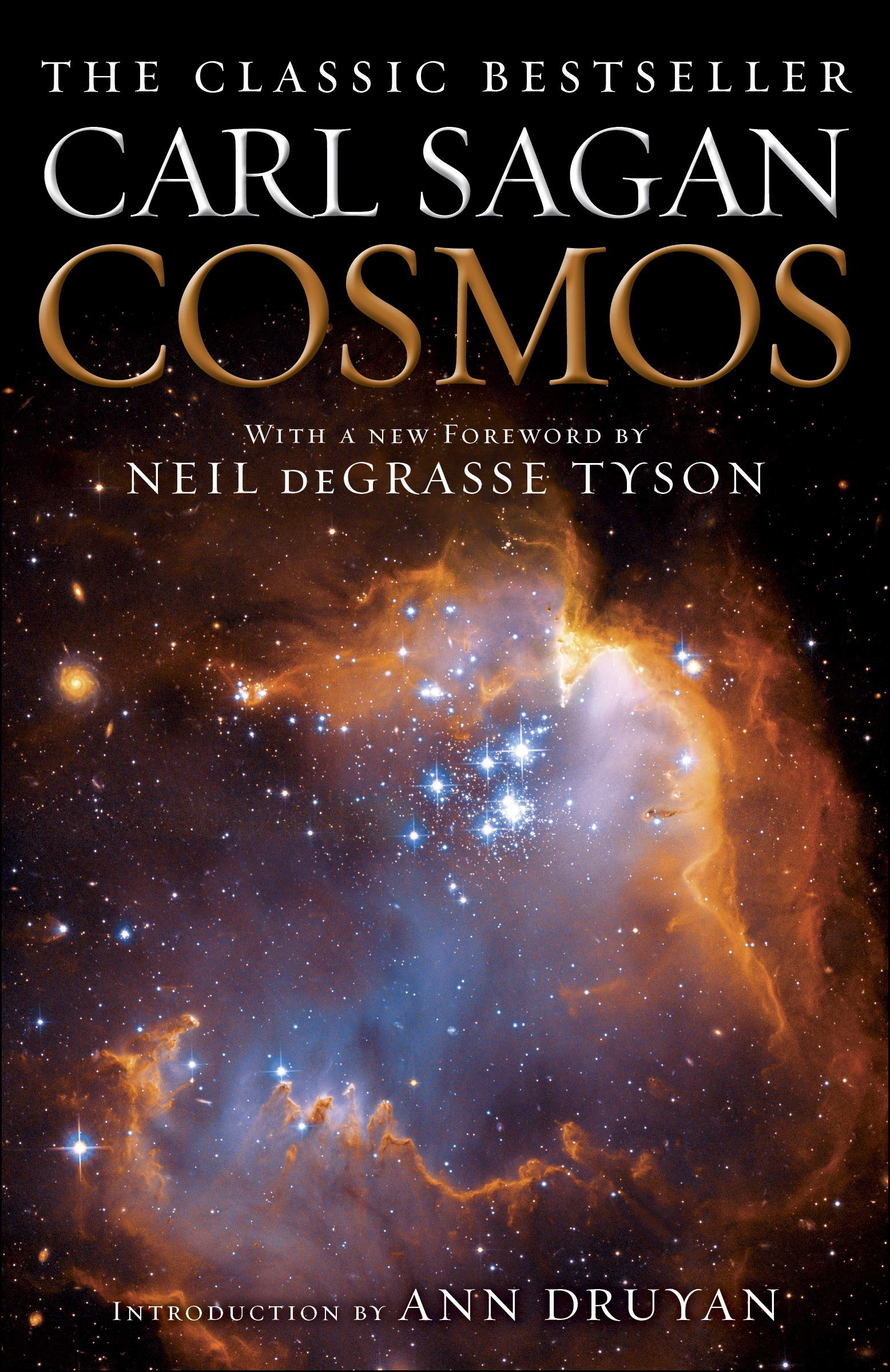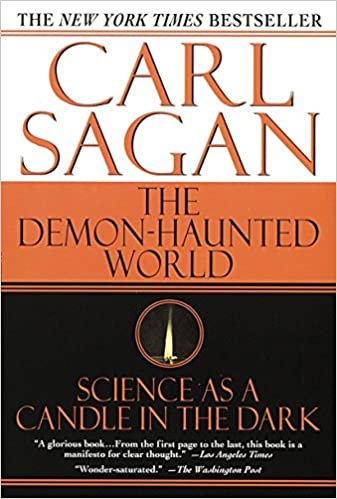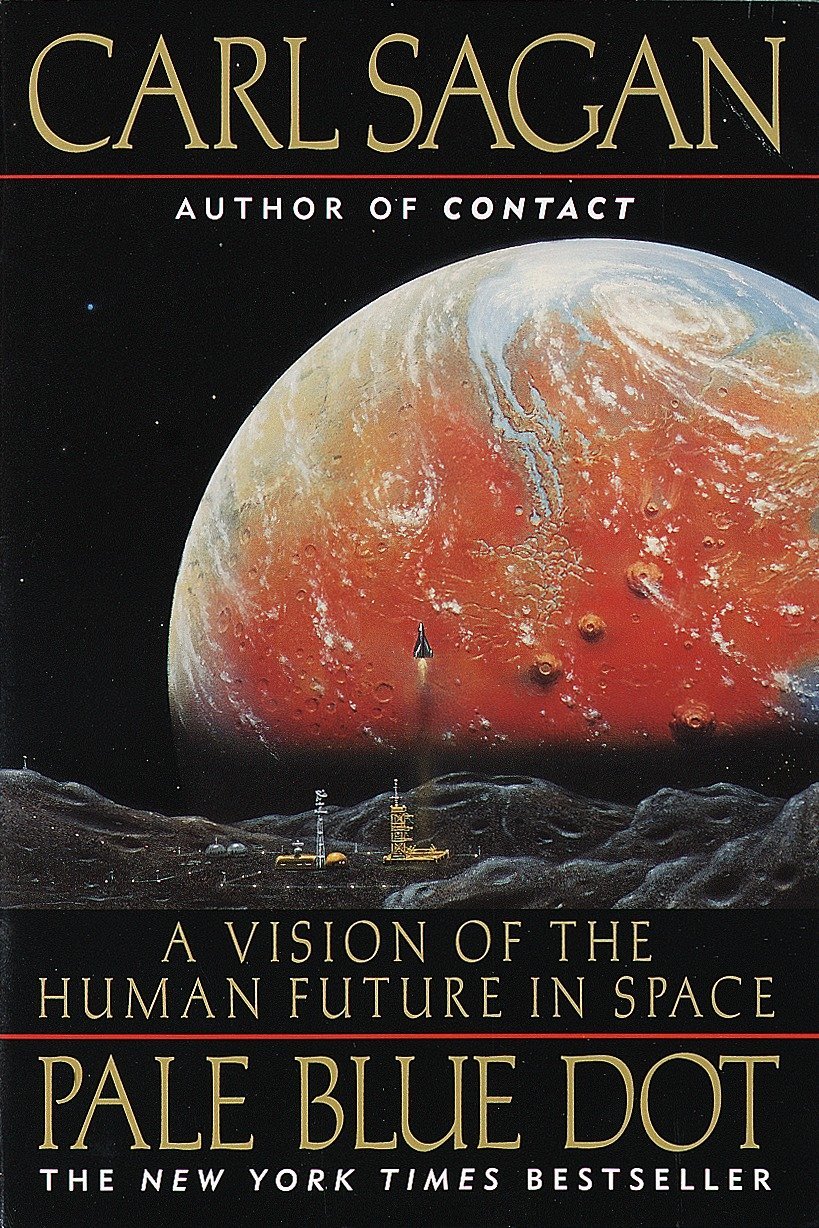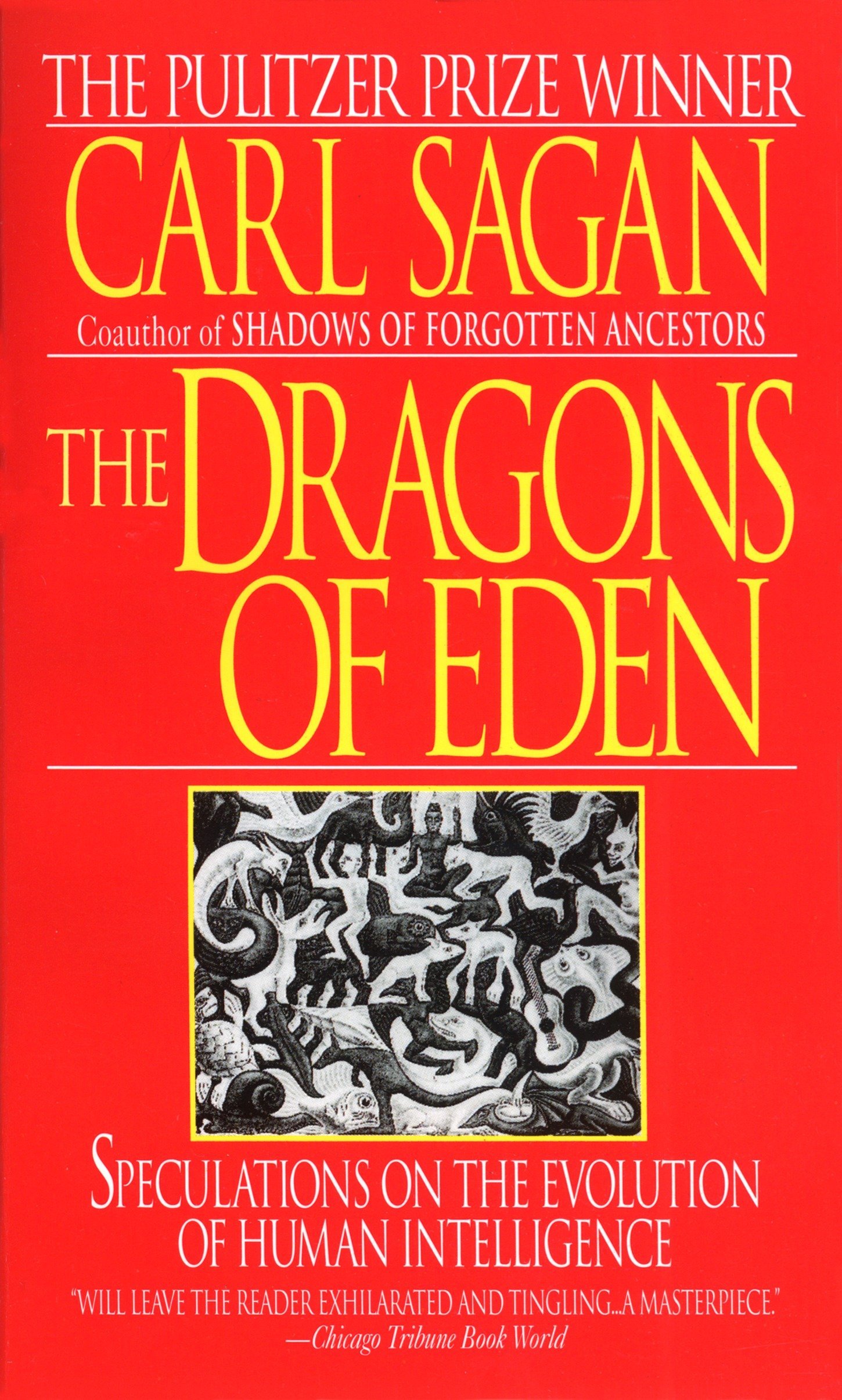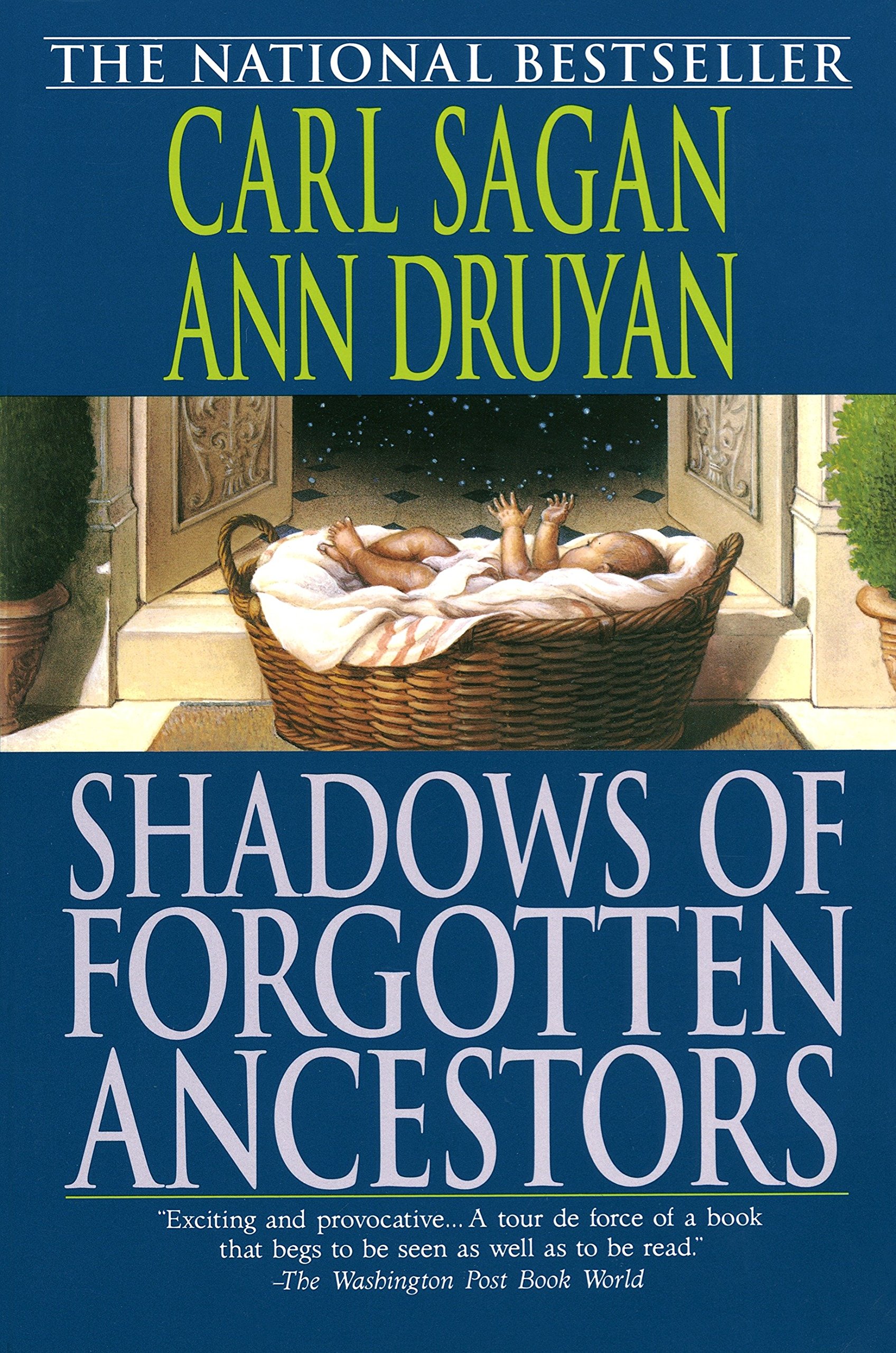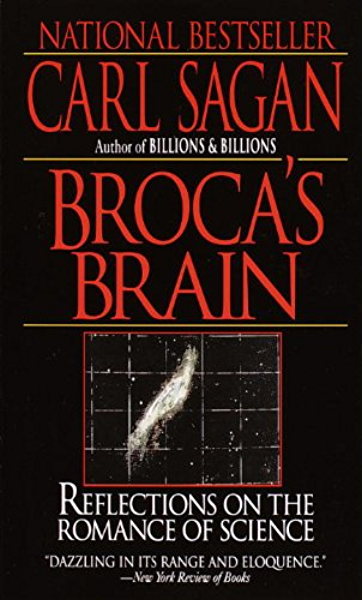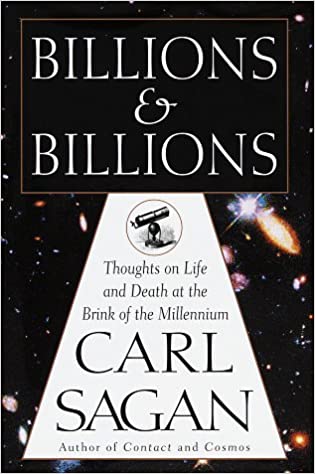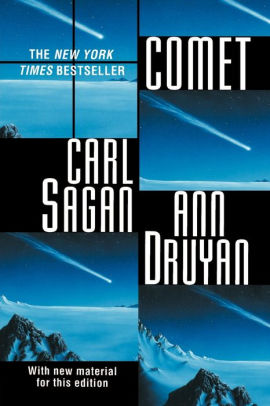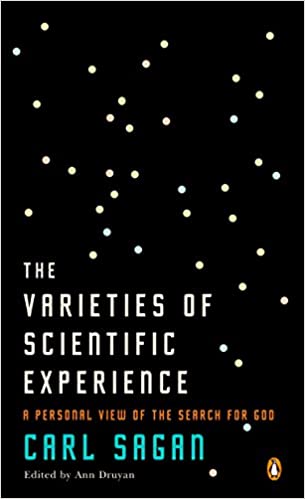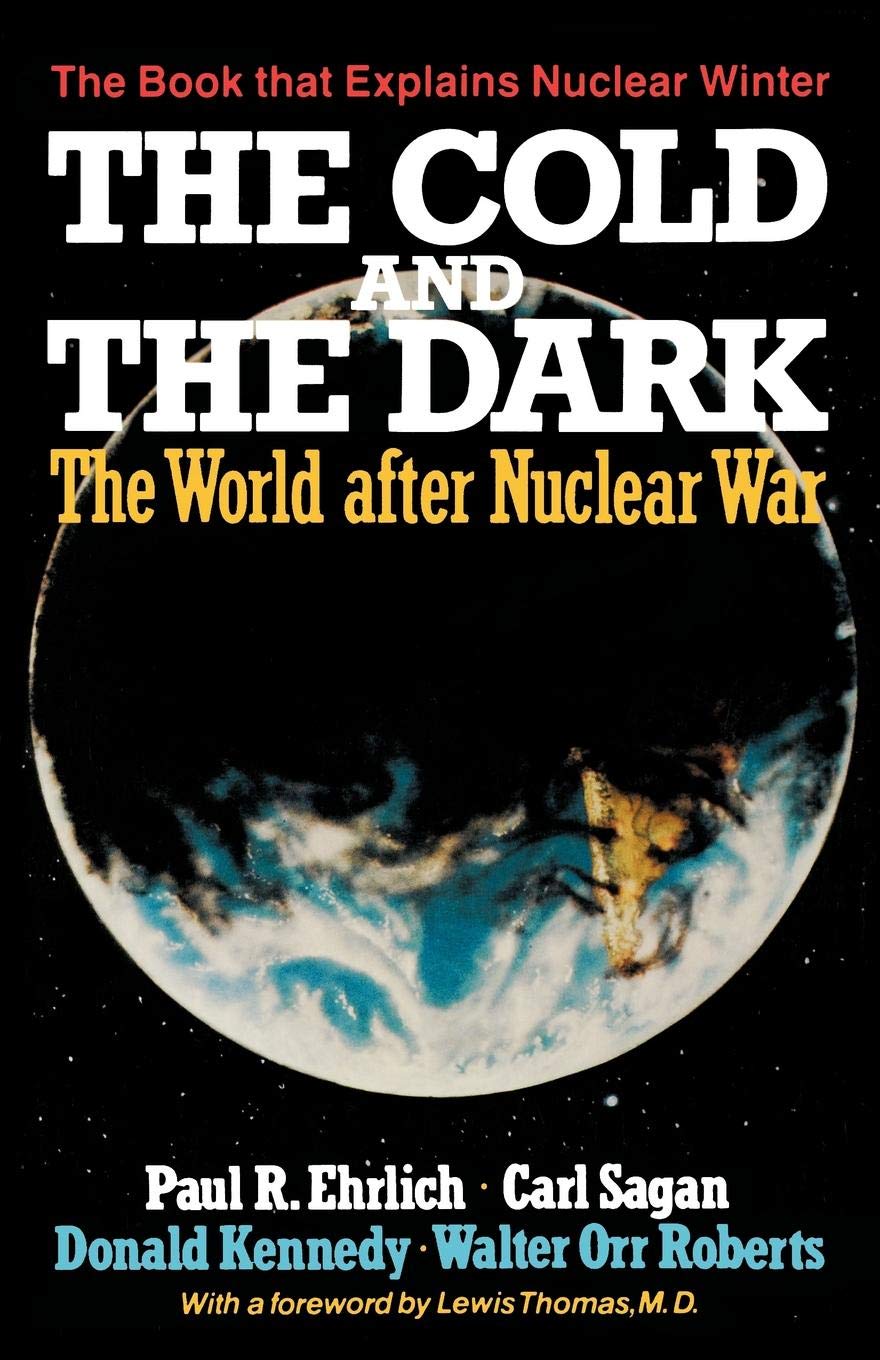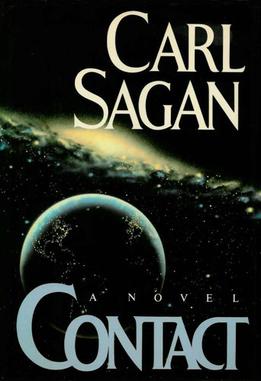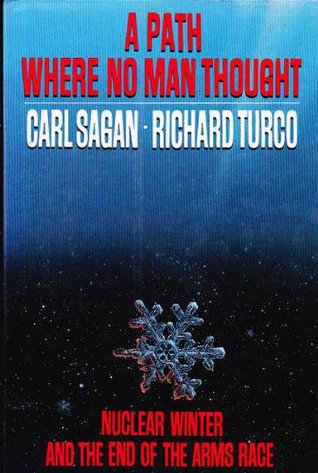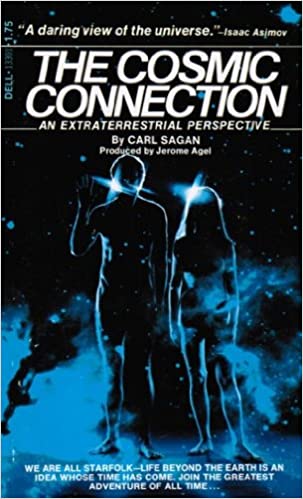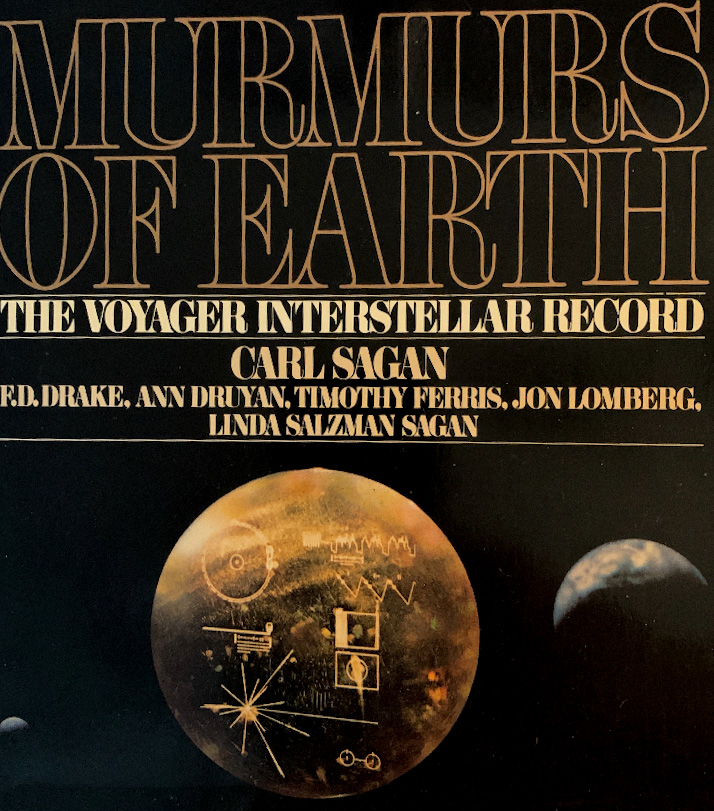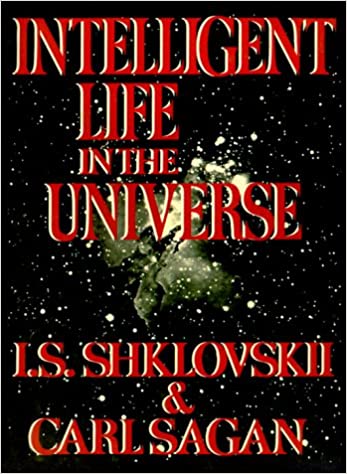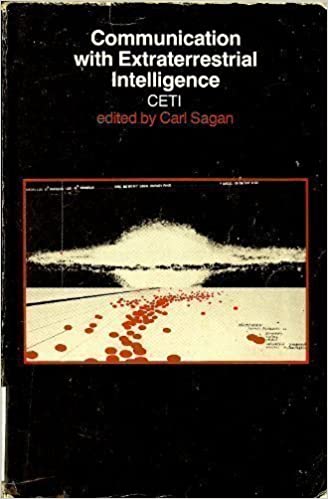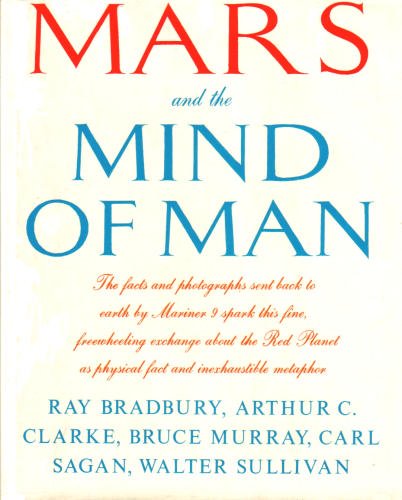Books
1961
- The Atmospheres of Mars and Venus (with W. W. Kellogg
1966
- Intelligent Life in the Universe (with I. S. Shklovskii)
- Planets (with Jonathan Leonard; introduction by G. P. Kuiper)
1970
- Planetary Exploration: The Condon Lectures
1971
- Planetary Atmospheres (ed. with T. Owen and H. J. Smith)
- Space Research XI (ed. with K. Y. Kondratyev and M. Rycroft),
- The Air War in Indochina (with R. Littauer and 17 others)
1972
- UFOs: A Scientific Debate (ed. with T. Page)
1973
- The Cosmic Connection: An Extraterrestrial Perspective
- Communication With Extraterrestrial Intelligence (CETD (ed.)
- Mars and the Mind of Man (with Ray Bradbury, Arthur C. Clarke, Bruce Murray, and Walter Sullivan) (New York: Harper and Row)
- Life Beyond Earth and the Mind of Man (with Richard Berendzen, Ashley Montagu, Philip Morrison, Krista Stendahl, George Wald)
1975
- Other Worlds
1977
- The Search for Extraterrestrial Intelligence (with P. Morrison and 14 others)
- The Dragons of Eden: Speculations on the Evolution ofHuman Intelligence
1978
- Murmurs of Earth: The Voyager Interstellar Record (with Frank Drake et al.)
- The Martian Landscape (with T. A. Mutch and other members of the Viking Lander Imaging Team)
1979
- Broca’s Brain: Reflections on the Romance of Science
- Machine Intelligence and Robotics: Report of the NASA Study Group (Chairman of Study Group; many co-authors)
1980
- COSMOS (with Ann Druyan)
1984
- The Fallacy of Star Wars: Why Space Weapons Can’t Protect Us (with R. Garwin et al.)
- The Cold and the Dark: The World After Nuclear War (with P.R. Ehrlich, D. Kennedy, and W.0. Roberts)
1985
- Contact: A Novel (with Ann Druyan)
- Comet (with Ann Druyan)
1990
- A Path Where No Man Thought: Nuclear Winter and the End of the Arms Race (with Richard Turco)
1992
- Shadows of Forgotten Ancestors: A Search for Who We Are (with Ann Druyan)
- Pale Blue Dot: A Vision of the Human Future in Space (with Ann Druyan)
1996
- The Demon-Haunted World: Science as a Candle in the Dark (with Ann Druyan)
1997
- Billions and Billions (with Ann Druyan)
2006
The Varieties of Scientific Experience: A Personal View of the Search for God (with Ann Druyan)
Quotes
The Dragons of Eden (1977)
- I proffer the following ideas with a substantial degree of trepidation; I know very well that many of them are speculative and can be proved or disproved on the anvil of experiment. (Introduction)
- My fundamental premise about the brain is that its workings—what we sometimes call “mind”—are a consequence of its anatomy and physiology, and nothing more. (Introduction)
- Absence of evidence is not evidence of absence. (Introduction)
- The entire recent history of biology shows that we are, to a remarkable degree, the results of the interactions of an extremely complex array of molecules; and the aspect of biology that was once considered its holy of holies, the nature of the genetic material, has now been fundamentally understood in terms of the chemistry of its constituent nucleic acids, DNA and RNA, and their operational agents, the proteins. (Introduction)
- Those at too great a distance may, I am well aware, mistake ignorance for perspective. (Introduction)
- At any rate, both because of the clear trend in the recent history of biology and because there is not a shred of evidence to support it, I will not in these pages entertain any hypotheses on what used to be called the mind-body dualism, the idea that inhabiting the matter of the body is something made of quite different stuff, called mind (Introduction)
- It is important to distinguish between the amount of information and the quality of that information. (Chapter 2, “Genes and Brains”)
- A mutation in a DNA molecule within a chromosome of a skin cell in my index finger has no influence on heredity. Fingers are not involved, at least directly, in the propagation of the species. (Chapter 2, “Genes and Brains”)
- Note that in all this interaction between mutation and natural selection, no moth is making a conscious effort to adapt to a changed environment. The process is random and statistical. (Chapter 2, “Genes and Brains”)
- There is a popular contention that half or more of the brain is unused. From an evolutionary point of view this would be quite extraordinary: why should it have evolved if it had no function? But actually the statement is made on very little evidence. (Chapter 2, “Genes and Brains”)
- The price we pay for the anticipation of our future is anxiety about it. Foretelling disaster is probably not much fun; Pollyanna was much happier than Cassandra. But the Cassandric components of our nature are necessary for survival. (Chapter 3, “The Brain and the Chariot”)
- While ritual, emotion and reasoning are all significant aspects of human nature, the most nearly unique human characteristic is the ability to associate abstractly and to reason. Curiosity and the urge to solve problems are the emotional hallmarks of our species; and the most characteristically human activities are mathematics, science, technology, music and the arts–a somewhat broader range of subjects than is usually included under the “humanities.” Indeed, in its common usage this very word seems to reflect a peculiar narrowness of vision about what is human. Mathematics is as much a “humanity” as poetry. (Chapter 3, “The Brain and the Chariot”)
- Evolution often uses this strategy. Indeed, the standard evolutionary practice of increasing the amount of genetic information as organisms increase in complexity is accomplished by doubling part of the genetic material and then allowing the slow specialization of function of the redundant set. (Chapter 7, “Lovers and Madmen”)
- There is no doubt that right-hemisphere intuitive thinking may perceive patterns and connections too difficult for the left hemisphere; but it may also detect patterns where none exist. Skeptical and critical thinking is not a hallmark of the right hemisphere. And unalloyed right-hemisphere doctrines, particularly when they are invented during new and trying circumstances, may be erroneous or paranoid. (Chapter 7, “Lovers and Madmen”)
- There is no way to tell whether the patterns extracted by the right hemisphere are real or imagined without subjecting them to left-hemisphere scrutiny. On the other hand, mere critical thinking, without creative and intuitive insights, without the search for new patterns, is sterile and doomed. To solve complex problems in changing circumstances requires the activity of both cerebral hemispheres: the path to the future lies through the corpus callosum. (Chapter 7, “Lovers and Madmen”)
- The search for patterns without critical analysis, and rigid skepticism without a search for patterns, are the antipodes of incomplete science. The effective pursuit of knowledge requires both functions. (Chapter 7, “Lovers and Madmen”)
- Without these experimental tests, very few physicists would have accepted general relativity. There are many hypotheses in physics of almost comparable brilliance and elegance that have been rejected because they did not survive such a confrontation with experiment. In my view, the human condition would be greatly improved if such confrontations and willingness to reject hypotheses were a regular part of our social, political, economic, religious and cultural lives. (Chapter 7, “Lovers and Madmen”)
- Anatomy is not destiny, but it is not irrelevant either. (Chapter 8, “The Future Evolution of the Brain”)
- In general, human societies are not innovative. They are hierarchical and ritualistic. Suggestions for change are greeted with suspicion: they imply an unpleasant future variation in ritual and hierarchy: an exchange of one set of rituals for another, or perhaps for a less structured society with fewer rituals. And yet there are times when societies must change. “The dogmas of the quiet past are inadequate for the stormy present” was Abraham Lincoln’s description of this truth. Much of the difficulty in attempting to restructure American and other societies arises from this resistance by groups with vested interests in the status quo. Significant change might require those who are now high in the hierarchy to move downward many steps. This seems to them undesirable and is resisted. (Chapter 8, “The Future Evolution of the Brain”)
- The integrity of the experimenters in the face of this unexpected finding is breathtaking. (It is difficult to imagine any experiment that would convince leading practitioners of many political or religious philosophies of the superiority of a competing doctrine. (Chapter 8, “The Future Evolution of the Brain”)
- To me it is not in the least demeaning that consciousness and intelligence are the result of “mere” matter sufficiently complexly arranged; on the contrary, it is an exalting tribute to the subtlety of matter and the laws of Nature. (Chapter 8, “The Future Evolution of the Brain”)
- That in nonarithmetic operations the small and slow human brain can still do so much better than the large and fast electronic computer is an impressive tribute to how cleverly the brain is packaged and programmed—features brought about, of course, by natural selection. Those who possessed poorly programmed brains eventually did not live long enough to reproduce. (Chapter 8, “The Future Evolution of the Brain”)
- The entire evolutionary record on our planet, particularly the record contained in fossil endocasts, illustrates a progressive tendency toward intelligence. There is nothing mysterious about this: smart organisms by and large survive better and leave more offspring than stupid ones. (Chapter 9, “Knowledge is Our Destiny: Terrestrial and Extraterrestrial Intelligence”)
- Once intelligent beings achieve technology and the capacity for self-destruction of their species, the selective advantage of intelligence becomes more uncertain. (Chapter 9, “Knowledge is Our Destiny: Terrestrial and Extraterrestrial Intelligence”)
- Natural selection has served as a kind of intellectual sieve, producing brains and intelligences increasingly competent to deal with the laws of nature. This resonance, extracted by natural selection, between our brains and the universe may help explain a quandary set by Einstein: The most incomprehensible property of the universe, he said, is that it is so comprehensible. (Chapter 9, “Knowledge is Our Destiny: Terrestrial and Extraterrestrial Intelligence”)
Broca’s Brain (1979)
- Both borderline science and many religions are motivated in part by a serious concern about the nature of the universe and our role in it, and for this reason merit our consideration and regard. In addition, I think it possible that many religions involve at their cores an attempt to come to grips with profound mysteries of our individual life histories, as described in the last chapter. But both in borderline science and in organized religion there is much that is specious or dangerous. While the practitioners of such doctrines often wish there were no criticisms to which they are expected to reply, skeptical scrutiny is the means, in both science and religion, by which deep insights can be winnowed from deep nonsense. (Introduction)
- The well-meaning contention that all ideas have equal merit seems to me little different from the disastrous contention that no ideas have any merit. (Introduction)
- Broca was quoted as saying, “I would rather be a transformed ape than a degenerate son of Adam.” (Chapter 1, “Broca’s Brain”)
- Society corrupts the best of us. It is a little unfair, I think, to criticize a person for not sharing the enlightenment of a later epoch, but it is also profoundly saddening that such prejudices were so extremely pervasive. The question raises nagging uncertainties about which of the conventional truths of our own age will be considered unforgivable bigotry by the next. (Chapter 1, “Broca’s Brain”)
- All inquiries carry with them some element of risk. There is no guarantee that the universe will conform to our predispositions. But I do not see how we can deal with the universe—both the outside and the inside universe—without studying it. The best way to avoid abuses is for the populace in general to be scientifically literate, to understand the implications of such investigations. In exchange for freedom of inquiry, scientists are obliged to explain their work. If science is considered a closed priesthood, too difficult and arcane for the average person to understand, the dangers of abuse are greater. But if science is a topic of general interest and concern—if both its delights and its social consequences are discussed regularly and competently in the schools, the press, and at the dinner table—we have greatly improved our prospects for learning how the world really is and for improving both it and us. (Chapter 1, “Broca’s Brain” )
- Our perceptions may be distorted by training and prejudice or merely because of the limitations of our sense organs, which, of course, perceive directly but a small fraction of the phenomena of the world. Even so straightforward a question as whether in the absence of friction a pound of lead falls faster than a gram of fluff was answered incorrectly by Aristotle and almost everyone else before the time of Galileo. Science is based on experiment, on a willingness to challenge old dogma, on an openness to see the universe as it really is. Accordingly, science sometimes requires courage—at the very least the courage to question the conventional wisdom. (Chapter 2, “Can We Know the Universe? Reflections on a Grain of Salt”)
- Whether in some sense the universe is ultimately knowable depends not only on how many natural laws there are that encompass widely divergent phenomena, but also on whether we have the openness and the intellectual capacity to understand such laws. Our formulations of the regularities of nature are surely dependent on how the brain is built, but also, and to a significant degree, on how the universe is built. For myself, I like a universe that includes much that is unknown and, at the same time, much that is knowable. A universe in which everything is known would be static and dull, as boring as the heaven of some weak-minded theologians. A universe that is unknowable is no fit place for a thinking being. The ideal universe for us is one very much like the universe we inhabit. And I would guess that this is not really much of a coincidence. (Chapter 2, “Can We Know the Universe? Reflections on a Grain of Salt”)
- People are rarely grateful for a demonstration of their credulity. (Chapter 5, “Night Walkers and Mystery Mongers: Sense and Nonsense at the End of Science”)
- Both Barnum and H. L. Mencken are said to have made the depressing observation that no one ever lost money by underestimating the intelligence of the American public. The remark has worldwide application. But the lack is not in intelligence, which is in plentiful supply; rather, the scarce commodity is systematic training in critical thinking. (Chapter 5, “Night Walkers and Mystery Mongers: Sense and Nonsense at the End of Science”)
- For many people, the shoddily thought out doctrines of borderline science are the closest approximation to comprehensible science readily available. The popularity of borderline science is a rebuke to the schools, the press and commercial television for their sparse, unimaginative and ineffective efforts at science education; and to us scientists, for doing so little to popularize our subject. (Chapter 5, “Night Walkers and Mystery Mongers: Sense and Nonsense at the End of Science”)
- But our openness to the dazzling possibilities presented by modern science must be tempered by some hard-nosed skepticism. Many interesting possibilities simply turn out to be wrong. An openness to new possibilities and a willingness to ask hard questions are both required to advance our knowledge. And the asking of tough questions has an ancillary benefit: political and religious life in America, especially in the last decade and a half, has been marked by an excessive public credulity, an unwillingness to ask difficult questions, which has produced a demonstrable impairment in our national health. Consumer skepticism makes quality products. This may be why governments and churches and school systems do not exhibit unseemly zeal in encouraging critical thought. They know they themselves are vulnerable. (Chapter 5, “Night Walkers and Mystery Mongers: Sense and Nonsense at the End of Science”)
- Very few scientists actually plunge into the murky waters of testing or challenging borderline or pseudo-scientific beliefs. The chance of finding out something really interesting—except about human nature—seems small, and the amount of time required seems large. I believe that scientists should spend more time in discussing these issues, but the fact that a given contention lacks vigorous scientific opposition in no way implies that scientists think it is reasonable. (Chapter 5, “Night Walkers and Mystery Mongers: Sense and Nonsense at the End of Science”)
- I believe that the extraordinary should certainly be pursued. But extraordinary claims require extraordinary evidence. (Chapter 5, “Night Walkers and Mystery Mongers: Sense and Nonsense at the End of Science”)
- Where skeptical observation and discussion are suppressed, the truth is hidden. The proponents of such borderline beliefs, when criticized, often point to geniuses of the past who were ridiculed. But the fact that some geniuses were laughed at does not imply that all who are laughed at are geniuses. They laughed at Columbus, they laughed at Fulton, they laughed at the Wright brothers. But they also laughed at Bozo the Clown.. (Chapter 5, “Night Walkers and Mystery Mongers: Sense and Nonsense at the End of Science”)
- The best antidote for pseudoscience, I firmly believe, is science. (Chapter 5, “Night Walkers and Mystery Mongers: Sense and Nonsense at the End of Science”)
- I believe that even a smattering of such findings in modern science and mathematics is far more compelling and exciting than most of the doctrines of pseudoscience, whose practitioners were condemned as early as the fifth century B.C. by the Ionian philosopher Heraclitus as “nightwalkers, magicians, priests of Bacchus, priestesses of the wine-vat, mystery-mongers.” But science is more intricate and subtle, reveals a much richer universe, and powerfully evokes our sense of wonder. And it has the additional and important virtue—to whatever extent the word has any meaning—of being true. (Chapter 5, “Night Walkers and Mystery Mongers: Sense and Nonsense at the End of Science”)
- Scientists, like other human beings, have their hopes and fears, their passions and despondencies—and their strong emotions may sometimes interrupt the course of clear thinking and sound practice. But science is also self-correcting. The most fundamental axioms and conclusions may be challenged. The prevailing hypotheses must survive confrontation with observation. Appeals to authority are impermissible. The steps in a reasoned argument must be set out for all to see. Experiments must be reproducible. The history of science is full of cases where previously accepted theories and hypotheses have been entirely overthrown, to be replaced by new ideas that more adequately explain the data. While there is an understandable psychological inertia—usually lasting about one generation—such revolutions in scientific thought are widely accepted as a necessary and desirable element of scientific progress. Indeed, the reasoned criticism of a prevailing belief is a service to the proponents of that belief; if they are incapable of defending it, they are well advised to abandon it. This self-questioning and error-correcting aspect of the scientific method is its most striking property, and sets it off from many other areas of human endeavor where credulity is the rule. (Chapter 7, “Venus and Dr. Velikovsky”)
- The idea of science as a method rather than as a body of knowledge is not widely appreciated outside of science, or indeed in some corridors inside of science. (Chapter 7, “Venus and Dr. Velikovsky”)
- Vigorous criticism is more constructive in science than in some other areas of human endeavor because in science there are adequate standards of validity that can be agreed upon by competent practitioners the world over. The objective of such criticism is not to suppress but rather to encourage the advance of new ideas: those that survive a firm skeptical scrutiny have a fighting chance of being right, or at least useful. (Chapter 7, “Venus and Dr. Velikovsky”)
- It is merely a coincidence. When enough fiction is written and enough scientific hypotheses are proposed, sooner or later there will be accidental concordances. (Chapter 7, “Venus and Dr. Velikovsky”)
- St. Anselm argued that since we can imagine a perfect being, he must exist—because he would not be perfect without the added perfection of existence. This so-called ontological argument was more or less promptly attacked on two grounds: (1) Can we imagine a completely perfect being? (2) Is it obvious that perfection is augmented by existence? To the modern ear such pious arguments seem to be about words and definitions rather than about external reality. (Chapter 8, “Norman Bloom, Messenger of God”)
- In the face of all this, many of the standard ideas of science fiction seem to me to pale by comparison. I see the relative absence of these things and the distortions of scientific thinking often encountered in science fiction as terrible wasted opportunities. Real science is as amenable to exciting and engrossing fiction as fake science, and I think it is important to exploit every opportunity to convey scientific ideas in a civilization which is both based upon science and does almost nothing to ensure that science is understood. (Chapter 9, “Science Fiction—A Personal View”)
- Many scientists deeply involved in the exploration of the solar system (myself among them) were first turned in that direction by science fiction. And the fact that some of that science fiction was not of the highest quality is irrelevant. Ten-year-olds do not read the scientific literature. (Chapter 9, “Science Fiction—A Personal View”)
- Every new set of discoveries raises a host of questions which we were never before wise enough even to ask. (Chapter 10, “The Sun’s Family”)
- Much of human history can, I think, be described as a gradual and sometimes painful liberation from provincialism, the emerging awareness that there is more to the world than was generally believed by our ancestors. (Chapter 16, “The Golden Age of Planetary Exploration”)
- The search for extraterrestrial intelligence is the search for a generally acceptable cosmic context for the human species. In the deepest sense, the search for extraterrestrial intelligence is a search for ourselves. (Chapter 22, “The Quest for Extraterrestrial Intelligence”)
- Whether we believe in God depends very much on what we mean by God. (Chapter 23, “A Sunday Sermon”)
- A clear prediction in an area undergoing vigorous study permits doctrines to be subject to disproof. The last posture a bureaucratic religion wishes to find itself in is vulnerability to disproof, where an experiment can be performed on which the religion stands or falls. (Chapter 23, “A Sunday Sermon”)
- It is astonishing in the face of such transparent evasions that this religion has any adherents at all. But religions are tough. Either they make no contentions which are subject to disproof or they quickly redesign doctrine after disproof. The fact that religions can be so shamelessly dishonest, so contemptuous of the intelligence of their adherents, and still flourish does not speak very well for the tough-mindedness of the believers. But it does indicate, if a demonstration were needed, that near the core of the religious experience is something remarkably resistant to rational inquiry. (Chapter 23, “A Sunday Sermon”)
- The idea that a God or gods is necessary to effect one or more of these origins has been under repeated attack over the last few thousand years. Because we know something about phototropism and plant hormones, we can understand the opening of the morning glory independent of divine microintervention. It is the same for the entire skein of causality back to the origin of the universe. As we learn more and more about the universe, there seems less and less for God to do. (Chapter 23, “A Sunday Sermon”)
- But there is a chance that the answers will discomfit a great many bureaucratic and doctrinal religions. The idea of religion as a body of belief, immune to criticism, fixed forever by some founder is, I think, a prescription for the long-term decay of the religion, especially lately. (Chapter 23, “A Sunday Sermon”)
- The First Amendment to the United States Constitution encourages a diversity of religions but does not prohibit criticism of religion. In fact it protects and encourages criticism of religion. Religions ought to be subject to at least the same degree of skepticism as, for example, contentions about UFO visitations or Velikovskian catastrophism. I think it is healthy for the religions themselves to foster skepticism about the fundamental underpinnings of their evidential bases. There is no question that religion provides a solace and support, a bulwark in time of emotional need, and can serve extremely useful social roles. But it by no means follows that religion should be immune from testing, from critical scrutiny, from skepticism. It is striking how little skeptical discussion of religion there is in the nation that Tom Paine, the author of The Age of Reason, helped to found. I hold that belief systems that cannot survive scrutiny are probably not worth having. (Chapter 23, “A Sunday Sermon”)
- The way to find out about our place in the universe is by examining the universe and by examining ourselves—without preconceptions, with as unbiased a mind as we can muster. We cannot begin with an entirely clean slate, since we arrive at this problem with predispositions of hereditary and environmental origin; but, after understanding such built-in biases, is it not possible to pry insights from nature? (Chapter 23, “A Sunday Sermon”)
- Proponents of doctrinal religions—ones in which a particular body of belief is prized and infidels scorned—will be threatened by the courageous pursuit of knowledge. We hear from such people that it may be dangerous to probe too deeply. Many people have inherited their religion like their eye color: they consider it not a thing to think very deeply about, and in any case beyond our control. But those with a set of beliefs they profess to feel deeply about, which they have selected without an unbiased sifting through the facts and the alternatives, will feel uncomfortably challenged by searching questions. Anger at queries about our beliefs is the body’s warning signal: here lies unexamined and probably dangerous doctrinal baggage. (Chapter 23, “A Sunday Sermon”)
- Some ancient Asian cosmological views are close to the idea of an infinite regression of causes, as exemplified in the following apocryphal story: A Western traveler encountering an Oriental philosopher asks him to describe the nature of the world: “It is a great ball resting on the flat back of the world turtle.” “Ah yes, but what does the world turtle stand on?” “On the back of a still larger turtle.” “Yes, but what does he stand on?” “A very perceptive question. But it’s no use, mister; it’s turtles all the way down.” (Chapter 24, “Gott and the Turtles”)
- It is a good idea not to make up our minds prematurely on this issue. It is probably best not to let our personal preferences influence the decision. Rather, in the long tradition of successful science, we should permit nature to reveal the truth to us. (Chapter 24, “Gott and the Turtles”)
- In any case, we do not advance the human cause by refusing to consider ideas that make us frightened. (Chapter 25, “The Amniotic Universe”)
- We are set irrevocably, I believe, on a path that will take us to the stars—unless in some monstrous capitulation to stupidity and greed, we destroy ourselves first. (Chapter 25, “The Amniotic Universe”)
Cosmos (1980)
- Our feeblest contemplations of the Cosmos stir us … We know we are approaching the greatest of mysteries.
- I believe our future depends powerfully on how well we understand this Cosmos in which we float like a mote of dust in the morning sky.
- It is all a matter of time scale. An event that would be unthinkable in a hundred years may be inevitable in a hundred million.
- Every one of us is, in the cosmic perspective, precious. If a human disagrees with you, let him live. In a hundred billion galaxies, you will not find another.
- In the vastness of space and the immensity of time, it is my joy to share a planet and an epoch with Annie.
- The Cosmos is all that is or ever was or ever will be. Our feeblest contemplations of the Cosmos stir us — there is a tingling in the spine, a catch in the voice, a faint sensation as if a distant memory, of falling from a height. We know we are approaching the greatest of mysteries.
- The size and age of the Cosmos are beyond ordinary human understanding. Lost somewhere between immensity and eternity is our tiny planetary home. In a cosmic perspective, most human concerns seem insignificant, even petty. And yet our species is young and curious and brave and shows much promise. In the last few millennia we have made the most astonishing and unexpected discoveries about the Cosmos and our place within it, explorations that are exhilarating to consider. They remind us that humans have evolved to wonder, that understanding is a joy, that knowledge is prerequisite to survival. I believe our future depends powerfully on how well we understand this Cosmos in which we float like a mote of dust in the morning sky.
- Imagination will often carry us to worlds that never were. But without it we go nowhere.
- We are like butterflies who flutter for a day and think it’s forever.
- The fossil record implies trial and error, an inability to anticipate the future, features inconsistent with an efficient Great Designer.
- If a marker were to be erected today, it might read, in homage to his scientific courage: “He preferred the hard truth to his dearest illusions.” (On the character of Johannes Kepler)
- It is all a matter of time scale. An event that would be unthinkable in a hundred years may be inevitable in a hundred million.
- The suppression of uncomfortable ideas may be common in religion and politics, but it is not the path to knowledge; it has no place in the endeavor of science.
- With insufficient data it is easy to go wrong.
- Our intelligence and our technology have given us the power to affect the climate. How will we use this power? Are we willing to tolerate ignorance and complacency in matters that affect the entire human family? Do we value short-term advantages above the welfare of the Earth? Or will we think on longer time scales, with concern for our children and our grandchildren, to understand and protect the complex life-support systems of our planet? The Earth is a tiny and fragile world. It needs to be cherished.
- Human beings have a demonstrated talent for self-deception when their emotions are stirred.
- For a long time the human instinct to understand was thwarted by facile religious explanations.
- They (i. e., the Pythagoreans) did not advocate the free confrontation of conflicting points of view. Instead, like all orthodox religions, they practised a rigidity that prevented them from correcting their errors.
- The Platonists and their Christian successors held the peculiar notion that the Earth was tainted and somehow nasty, while the heavens were perfect and divine. The fundamental idea that the Earth is a planet, that we are citizens of the Universe, was rejected and forgotten.
- For as long as there been humans we have searched for our place in the cosmos. Where are we? Who are we? We find that we live on an insignificant planet of a hum-drum star lost in a galaxy tucked away in some forgotten corner of a universe in which there are far more galaxies than people. This perspective is a courageous continuation of our penchant for constructing and testing mental models of the skies; the Sun as a red-hot stone, the stars as a celestial flame, the Galaxy as the backbone of night.
- If we long for our planet to be important, there is something we can do about it. We make our world significant by the courage of our questions and by the depth of our answers.
- We embarked on our journey to the stars with a question first framed in the childhood of our species and in each generation asked anew with undiminished wonder: What are the stars? Exploration is in our nature. We began as wanderers, and we are wanderers still. We have lingered long enough on the shores of the cosmic ocean. We are ready at last to set sail for the stars.
- Astronomically, the U. S. S. R. and the United States are the same place.
- Relativity does set limits on what humans can ultimately do. But the universe is not required to be in perfect harmony with human aspirations.
- I have…a terrible need…shall I say the word?…of religion. Then I go out at night and paint the stars. (Quoting Vincent van Gogh)
- If you wish to make an apple pie from scratch, you must first invent the universe.
- Matter is composed chiefly of nothing.
- A googolplex is precisely as far from infinity as is the number 1… no matter what number you have in mind, infinity is larger still.
- The universe seems neither benign nor hostile, merely indifferent to the concerns of such puny creatures as we are.
- Nobody listens to mathematicians.
- The neurochemistry of the brain is astonishingly busy, the circuitry of a machine more wonderful than any devised by humans. But there is no evidence that its functioning is due to anything more than the 1014 neural connections that build an elegant architecture of consciousness.
- Books permit us to voyage through time, to tap the wisdom of our ancestors. The library connects us with the insights and knowledge, painfully extracted from Nature, of the greatest minds that ever were, with the best teachers, drawn from the entire planet and from all of our history, to instruct us without tiring, and to inspire us to make our own contribution to the collective knowledge of the human species. Public libraries depend on voluntary contributions. I think the health of our civilization, the depth of our awareness about the underpinnings of our culture and our concern for the future can all be tested by how well we support our libraries.
- Other things being equal, it is better to be smart than to be stupid.
- The choice is with us still, but the civilization now in jeopardy is all humanity. As the ancient myth makers knew, we are children equally of the earth and the sky. In our tenure on this planet we’ve accumulated dangerous evolutionary baggage — propensities for aggression and ritual, submission to leaders, hostility to outsiders — all of which puts our survival in some doubt. But we’ve also acquired compassion for others, love for our children and desire to learn from history and experience, and a great soaring passionate intelligence — the clear tools for our continued survival and prosperity. Which aspects of our nature will prevail is uncertain, particularly when our visions and prospects are bound to one small part of the small planet Earth. But up there in the immensity of the Cosmos, an inescapable perspective awaits us. There are not yet any obvious signs of extraterrestrial intelligence and this makes us wonder whether civilizations like ours always rush implacably, headlong, toward self-destruction. National boundaries are not evident when we view the Earth from space. Fanatical ethnic or religious or national chauvinisms are a little difficult to maintain when we see our planet as a fragile blue crescent fading to become an inconspicuous point of light against the bastion and citadel of the stars. Travel is broadening.
- War is murder writ large. War is murder writ large.
- We have heard the rationales offered by the nuclear superpowers. We know who speaks for the nations. But who speaks for the human species? Who speaks for Earth?
- Those afraid of the universe as it really is, those who pretend to nonexistent knowledge and envision a Cosmos centered on human beings will prefer the fleeting comforts of superstition. They avoid rather than confront the world. But those with the courage to explore the weave and structure of the Cosmos, even where it differs profoundly from their wishes and prejudices, will penetrate its deepest mysteries.
- There is no other species on the Earth that does science. It is, so far, entirely a human invention, evolved by natural selection in the cerebral cortex for one simple reason: it works. It is not perfect. It can be misused. It is only a tool. But it is by far the best tool we have, self-correcting, ongoing, applicable to everything. It has two rules. First: there are no sacred truths; all assumptions must be critically examined; arguments from authority are worthless. Second: whatever is inconsistent with the facts must be discarded or revised. We must understand the Cosmos as it is and not confuse how it is with how we wish it to be.
- Human history can be viewed as a slowly dawning awareness that we are members of a larger group. Initially our loyalties were to ourselves and our immediate family, next, to bands of wandering hunter-gatherers, then to tribes, small settlements, city-states, nations. We have broadened the circle of those we love. We have now organized what are modestly described as super-powers, which include groups of people from divergent ethnic and cultural backgrounds working in some sense together — surely a humanizing and character building experience. If we are to survive, our loyalties must be broadened further, to include the whole human community, the entire planet Earth. Many of those who run the nations will find this idea unpleasant. They will fear the loss of power. We will hear much about treason and disloyalty. Rich nation-states will have to share their wealth with poor ones. But the choice, as H. G. Wells once said in a different context, is clearly the universe or nothing.
- Every one of us is, in the cosmic perspective, precious. If a human disagrees with you, let him live. In a hundred billion galaxies, you will not find another.
- We are the local embodiment of a Cosmos grown to self-awareness. We have begun to contemplate our origins: starstuff pondering the stars; organized assemblages of ten billion billion billion atoms considering the evolution of atoms; tracing the long journey by which, here at least, consciousness arose. Our loyalties are to the species and the planet. We speak for Earth. Our obligation to survive is owed not just to ourselves but also to that Cosmos, ancient and vast, from which we spring.
Contact (1985)
- I wish to propose a doctrine which may, I fear, appear wildly paradoxical and subversive. The doctrine in question is this: that it is undesirable to believe a proposition when there is no ground whatever for supposing it true. I must, of course, admit that if such an opinion became common it would completely transform our social life and our political system; since both are at present faultless, this must weigh against it.
- Humans are good, she knew, at discerning subtle patterns that are really there, but equally so at imagining them when they are altogether absent.
- We could not guess how different from us they (extraterrestrials) might be. It was hard enough to guess the intentions of our elected representatives in Washington.
- If we like them, they’re freedom fighters, she thought. If we don’t like them, they’re terrorists. In the unlikely case we can’t make up our minds, they’re temporarily only guerrillas.
- If the press descended, the science would surely suffer.
- It’s hard to kill a creature once it lets you see its consciousness.
- “Let’s see if I’ve got this straight,” he returned. It was a phrase of hers that he had adopted “It’s a lazy Saturday afternoon, and there’s this couple lying naked in bed reading the Encyclopædia Britannica to each other, and arguing about whether the Andromeda Galaxy is more ‘numinous’ than the Resurrection. Do they know how to have a good time or don’t they?”
- Do we, holding that the gods exist,
deceive ourselves with insubstantial dreams
and lies, while random careless chance and
change alone control the world?
- The major religions on the Earth contradict each other left and right. You can’t all be correct. And what if all of you are wrong? It’s a possibility, you know. You must care about the truth, right? Well, the way to winnow through all the differing contentions is to be skeptical. I’m not any more skeptical about your religious beliefs than I am about every new scientific idea I hear about. But in my line of work, they’re called hypotheses, not inspiration and not revelation.
- What I’m saying is, if God wanted to send us a message, and ancient writings were the only way he could think of doing it, he could have done a better job.
- Anything you don’t understand, Mr. Rankin, you attribute to God. God for you is where you sweep away all the mysteries of the world, all the challenges to our intelligence. You simply turn your mind off and say God did it.
- Jingoistic rhetoric and puerile self-congratulatory nationalism.
- Many harebrained interpretations were also widely available, especially in weekly newspapers.
- Skepticism is the chastity of the intellect, and it is shameful to surrender it too soon or to the first comer; there is nobility in preserving it coolly and proudly through long youth, until at last, in the ripeness of instinct and discretion, it can be safely exchanged for fidelity and happiness.
- A celibate clergy is an especially good idea, because it tends to suppress any hereditary propensity toward fanaticism.
- The chiliasts made an atheist out of me.
- You see, the religious people — most of them — really think this planet is an experiment. That’s what their beliefs come down to. Some god or other is always fixing and poking, messing around with tradesmen’s wives, giving tablets on mountains, commanding you to mutilate your children, telling people what words they can say and what words they can’t say, making people feel guilty about enjoying themselves, and like that. Why can’t the gods leave well enough alone? All this intervention speaks of incompetence. If God didn’t want Lot’s wife to look back, why didn’t he make her obedient, so she’d do what her husband told her? Or if he hadn’t made Lot such a shithead, maybe she would’ve listened to him more. If God is omnipotent and omniscient, why didn’t he start the universe out in the first place so it would come out the way he wants? Why’s he constantly repairing and complaining? No, there’s one thing the Bible makes clear: The biblical God is a sloppy manufacturer. He’s not good at design, he’s not good at execution. He’d be out of business if there was any competition.
- In Mozambique, the story goes, monkeys do not talk, because they know if they utter even a single word some man will come and put them to work.
- “Do you understand what’s going on?”
“Not at all,” he shouted back. “I can almost prove this can’t be happening.”
- Humans are very good at dreaming, although you’d never know it from your television.
- In the long run, the aggressive civilizations destroy themselves, almost always. It’s their nature. They can’t help it.
- That it will never come again
Is what makes life so sweet. (Quoting Emily Dickinson; The Poems of Emily Dickinson)
- This planet is run by crazy people. Remember what they have to do to get where they are. Their perspective is so narrow, so…brief. A few years. In the best of them a few decades. They care only about the time they are in power.
- She too had found the experience transforming. How could she not? A demon had been exorcised. Several. And just when she felt more capable of love than she had ever been, she found herself alone.
- For small creatures such as we the vastness is bearable only through love. (Ann Druyan)
- The universe was made on purpose, the circle said. In whatever galaxy you happen to find yourself, you take the circumference of a circle, divide it by its diameter, measure closely enough, and uncover a miracle — another circle, drawn kilometers downstream of the decimal point. There would be richer messages farther in. It doesn’t matter what you look like, or what you’re made of, or where you come from. As long as you live in this universe, and have a modest talent for mathematics, sooner or later you’ll find it. It’s already here. It’s inside everything. You don’t have to leave your planet to find it. In the fabric of space and in the nature of matter, as in a great work of art, there is, written small, the artist’s signature. Standing over humans, gods, and demons, subsuming Caretakers and Tunnel builders, there is an intelligence that antedates the universe.
Pale Blue Dot: A Vision of the Human Future in Space (1994)
- For all its material advantages, the sedentary life has left us edgy, unfulfilled. Even after 400 generations in villages and cities, we haven’t forgotten. The open road still softly calls, like a nearly forgotten song of childhood. We invest far-off places with a certain romance. This appeal, I suspect, has been meticulously crafted by natural selection as an essential element in our survival. Long summers, mild winters, rich harvests, plentiful game—none of them lasts forever. It is beyond our powers to predict the future. Catastrophic events have a way of sneaking up on us, of catching us unaware. Your own life, or your band’s, or even your species’ might be owed to a restless few—drawn, by a craving they can hardly articulate or understand, to undiscovered lands and new worlds.
Herman Melville, in Moby Dick, spoke for wanderers in all epochs and meridians: “I am tormented with an everlasting itch for things remote. I love to sail forbidden seas…”
- Consider again that dot. That’s here. That’s home. That’s us. On it everyone you love, everyone you know, everyone you ever heard of, every human being who ever was, lived out their lives. The aggregate of our joy and suffering, thousands of confident religions, ideologies, and economic doctrines, every hunter and forager, every hero and coward, every creator and destroyer of civilization, every king and peasant, every young couple in love, every mother and father, hopeful child, inventor and explorer, every teacher of morals, every corrupt politician, every “superstar”, every “supreme leader”, every saint and sinner in the history of our species lived there — on a mote of dust suspended in a sunbeam.
The Earth is a very small stage in a vast cosmic arena. Think of the rivers of blood spilled by all those generals and emperors so that, in glory and triumph, they could become the momentary masters of a fraction of a dot. Think of the endless cruelties visited by the inhabitants of one corner of this pixel on the scarcely distinguishable inhabitants of some other corner, how frequent their misunderstandings, how eager they are to kill one another, how fervent their hatreds.
Our posturings, our imagined self-importance, the delusion that we have some privileged position in the Universe, are challenged by this point of pale light. Our planet is a lonely speck in the great enveloping cosmic dark. In our obscurity, in all this vastness, there is no hint that help will come from elsewhere to save us from ourselves.
The Earth is the only world known so far to harbor life. There is nowhere else, at least in the near future, to which our species could migrate. Visit, yes. Settle, not yet. Like it or not, for the moment the Earth is where we make our stand.
It has been said that astronomy is a humbling and character-building experience. There is perhaps no better demonstration of the folly of human conceits than this distant image of our tiny world. To me, it underscores our responsibility to deal more kindly with one another, and to preserve and cherish the pale blue dot, the only home we’ve ever known.
- Ann Druyan suggests an experiment: Look back again at the pale blue dot of the preceding chapter. Take a good long look at it. Stare at the dot for any length of time and then try to convince yourself that God created the whole Universe for one of the 10 million or so species of life that inhabit that speck of dust. Now take it a step further: Imagine that everything was made just for a single shade of that species, or gender, or ethnic or religious subdivision. If this doesn’t strike you as unlikely, pick another dot. Imagine it to be inhabited by a different form of intelligent life. They, too, cherish the notion of a God who has created everything for their benefit. How seriously do you take their claim?
- It took the Church until 1832 to remove Galileo’s work from its list of books which Catholics were forbidden to read at the risk of dire punishment of their immortal souls.
- We’ve tended in our cosmologies to make things familiar. Despite all our best efforts, we’ve not been very inventive. In the West, Heaven is placid and fluffy, and Hell is like the inside of a volcano. In many stories, both realms are governed by dominance hierarchies headed by gods or devils. Monotheists talked about the king of kings. In every culture we imagined something like our own political system running the Universe. Few found the similarity suspicious.
- In some respects, science has far surpassed religion in delivering awe. How is it that hardly any major religion has looked at science and concluded, “This is better than we thought! The Universe is much bigger than our prophets said, grander, more subtle, more elegant. God must be even greater than we dreamed”? Instead they say, “No, no, no! My god is a little god, and I want him to stay that way.”
- Once we overcome our fear of being tiny, we find ourselves on the threshold of a vast and awesome Universe that utterly dwarfs — in time, in space, and in potential — the tidy anthropocentric proscenium of our ancestors. We gaze across billions of light-years of space to view the Universe shortly after the Big Bang, and plumb the fine structure of matter. We peer down into the core of our planet, and the blazing interior of our star. We read the genetic language in which is written the diverse skills and propensities of every being on Earth. We uncover hidden chapters in the record of our origins, and with some anguish better understand our nature and prospects. We invent and refine agriculture, without which almost all of us would starve to death. We create medicines and vaccines that save the lives of billions. We communicate at the speed of light, and whip around the Earth in an hour and a half. We have sent dozens of ships to more than seventy worlds, and four spacecraft to the stars. We are right to rejoice in our accomplishments, to be proud that our species has been able to see so far, and to judge our merit in part by the very science that has so deflated our pretensions.
- It is sometimes said that scientists are unromantic, that their passion to figure out robs the world of beauty and mystery. But is it not stirring to understand how the world actually works — that white light is made of colors, that color is the way we perceive the wavelengths of light, that transparent air reflects light, that in so doing it discriminates among the waves, and that the sky is blue for the same reason that the sunset is red? It does no harm to the romance of the sunset to know a little bit about it.
- Those who are skeptical about carbon dioxide greenhouse warming might profitably note the massive greenhouse effect on Venus. No one proposes that Venus’s greenhouse effect derives from imprudent Venusians who burned too much coal, drove fuel-inefficient autos, and cut down their forests. My point is different. The climatological history of our planetary neighbor, an otherwise Earthlike planet on which the surface became hot enough to melt tin or lead, is worth considering — especially by those who say that the increasing greenhouse effect on Earth will be self-correcting, that we don’t really have to worry about it, or (you can see this in the publications of some groups that call themselves conservative) that the greenhouse effect is a “hoax”.
- A scientific colleague tells me about a recent trip to the New Guinea highlands where she visited a stone age culture hardly contacted by Western civilization. They were ignorant of wristwatches, soft drinks, and frozen food. But they knew about Apollo 11. They knew that humans had walked on the Moon. They knew the names of Armstrong and Aldrin and Collins. They wanted to know who was visiting the Moon these days.
- Since, in the long run, every planetary society will be endangered by impacts from space, every surviving civilization is obliged to become spacefaring — not because of exploratory or romantic zeal, but for the most practical reason imaginable: staying alive.
- Imagine we could accelerate continuously at 1 g — what we’re comfortable with on good old terra firma — to the midpoint of our voyage, and decelerate continuously at 1 g until we arrive at our destination. It would take a day to get to Mars, a week and a half to Pluto, a year to the Oort Cloud, and a few years to the nearest stars.
- The vast distances that separate the stars are providential. Beings and worlds are quarantined from one another. The quarantine is lifted only for those with sufficient self-knowledge and judgment to have safely traveled from star to star.
- Modern science has been a voyage into the unknown, with a lesson in humility waiting at every stop. Many passengers would rather have stayed home.
- If we crave some cosmic purpose, then let us find ourselves a worthy goal.
The Demon-Haunted World : Science as a Candle in the Dark (1995)
- Advances in medicine and agriculture have saved vastly more lives than have been lost in all the wars in history.
- If we long to believe that the stars rise and set for us, that we are the reason there is a Universe, does science do us a disservice in deflating our conceits?
- For me, it is far better to grasp the Universe as it really is than to persist in delusion, however satisfying and reassuring.
- I have a foreboding of an America in my children’s or grandchildren’s time — when the United States is a service and information economy; when nearly all the manufacturing industries have slipped away to other countries; when awesome technological powers are in the hands of a very few, and no one representing the public interest can even grasp the issues; when the people have lost the ability to set their own agendas or knowledgeably question those in authority; when, clutching our crystals and nervously consulting our horoscopes, our critical faculties in decline, unable to distinguish between what feels good and what’s true, we slide, almost without noticing, back into superstition and darkness.
- We’ve arranged a global civilization in which the most crucial elements — transportation, communications, and all other industries; agriculture, medicine, education, entertainment, protecting the environment; and even the key democratic institution of voting — profoundly depend on science and technology. We have also arranged things so that almost no one understands science and technology. This is a prescription for disaster. We might get away with it for a while, but sooner or later this combustible mixture of ignorance and power is going to blow up in our faces.
- Humans may crave absolute certainty; they may aspire to it; they may pretend, as partisans of certain religions do, to have attained it. But the history of science — by far the most successful claim to knowledge accessible to humans — teaches that the most we can hope for is successive improvement in our understanding, learning from our mistakes, an asymptotic approach to the Universe, but with the proviso that absolute certainty will always elude us.
- Think of how many religions attempt to validate themselves with prophecy. Think of how many people rely on these prophecies, however vague, however unfulfilled, to support or prop up their beliefs. Yet has there ever been a religion with the prophetic accuracy and reliability of science? … No other human institution comes close.
- I worry that, especially as the Millennium edges nearer, pseudo-science and superstition will seem year by year more tempting, the siren song of unreason more sonorous and attractive. Where have we heard it before? Whenever our ethnic or national prejudices are aroused, in times of scarcity, during challenges to national self-esteem or nerve, when we agonize about our diminished cosmic place and purpose, or when fanaticism is bubbling up around us-then, habits of thought familiar from ages past reach for the controls. The candle flame gutters. Its little pool of light trembles. Darkness gathers. The demons begin to stir.
- I try not to think with my gut. If I’m serious about understanding the world, thinking with anything besides my brain, as tempting as that might be, is likely to get me into trouble. Really, it’s okay to reserve judgment until the evidence is in.
- Appeal to ignorance — the claim that whatever has not been proved false must be true, and vice versa (e.g. There is no compelling evidence that UFOs are not visiting the Earth; therefore UFOs exist — and there is intelligent life elsewhere in the universe. Or: There may be seventy kazillion other worlds, but not one is known to have the moral advancement of the Earth, so we’re still central to the Universe.) This impatience with ambiguity can be criticized in the phrase: absence of evidence is not evidence of absence. (Referring to an aphorism of Martin Rees. see Misattributed below)
- One of the saddest lessons of history is this: If we’ve been bamboozled long enough, we tend to reject any evidence of the bamboozle. We’re no longer interested in finding out the truth. The bamboozle has captured us. It’s simply too painful to acknowledge, even to ourselves, that we’ve been taken. Once you give a charlatan power over you, you almost never get it back.
- At the heart of science is an essential balance between two seemingly contradictory attitudes – an openness to new ideas, no matter how bizarre or counterintuitive, and the most ruthlessly skeptical scrutiny of all ideas, old and new. This is how deep truths are winnowed from deep nonsense. The collective enterprise of creative thinking and skeptical thinking, working together, keeps the field on track. Those two seemingly contradictory attitudes are, though, in some tension.
- Books, purchasable at low cost, permit us to interrogate the past with high accuracy; to tap the wisdom of our species; to understand the point of view of others, and not just those in power; to contemplate — with the best teachers — the insights, painfully extracted from Nature, of the greatest minds that ever were, drawn from the entire planet and from all of our history. They allow people long dead to talk inside our heads. Books can accompany us everywhere. Books are patient where we are slow to understand, allow us to go over the hard parts as many times as we wish, and are never critical of our lapses. Books are key to understanding the world and participating in a democratic society.
- Education on the value of free speech and the other freedoms reserved by the Bill of Rights, about what happens when you don’t have them, and about how to exercise and protect them, should be an essential prerequisite for being an American citizen — or indeed a citizen of any nation, the more so to the degree that such rights remain unprotected. If we can’t think for ourselves, if we’re unwilling to question authority, then we’re just putty in the hands of those in power. But if the citizens are educated and form their own opinions, then those in power work for us. In every country, we should be teaching our children the scientific method and the reasons for a Bill of Rights. With it comes a certain decency, humility and community spirit. In the demon-haunted world that we inhabit by virtue of being human, this may be all that stands between us and the enveloping darkness.
- When we consider the founders of our nation: Jefferson, Washington, Samuel and John Adams, Madison and Monroe, Benjamin Franklin, Tom Paine and many others; we have before us a list of at least ten and maybe even dozens of great political leaders. They were well educated. Products of the European Enlightenment, they were students of history. They knew human fallibility and weakness and corruptibility. They were fluent in the English language. They wrote their own speeches. They were realistic and practical, and at the same time motivated by high principles. They were not checking the pollsters on what to think this week. They knew what to think. They were comfortable with long-term thinking, planning even further ahead than the next election. They were self-sufficient, not requiring careers as politicians or lobbyists to make a living. They were able to bring out the best in us. They were interested in and, at least two of them, fluent in science. They attempted to set a course for the United States into the far future — not so much by establishing laws as by setting limits on what kinds of laws could be passed. The Constitution and its Bill of Rights have done remarkably well, constituting, despite human weaknesses, a machine able, more often than not, to correct its own trajectory. At that time, there were only about two and a half million citizens of the United States. Today there are about a hundred times more. So if there were ten people of the caliber of Thomas Jefferson then, there ought to be 10 x 100 = 1,000 Thomas Jefferson’s today. Where are they?
Billions and Billions: Thoughts on Life and Death at the Brink of the Millenium (1997)
- I never said it. Honest. Oh, I said there are maybe 100 billion galaxies and 10 billion trillion stars. It’s hard to talk about the Cosmos without using big numbers. I said “billion” many times on the Cosmos television series, which was seen by a great many people. But I never said “billions and billions.” For one thing, it’s too imprecise. How many billions are “billions and billions”? A few billion? Twenty billion? A hundred billion? “Billions and billions” is pretty vague…For a while, out of childish pique, I wouldn’t utter the phrase, even when asked to. But I’ve gotten over that. So, for the record, here goes:
“Billions and billions.”
- This doesn’t mean you can picture a billion or a quintillion objects in your head—nobody can. But, with exponential notation, we can think about and calculate with such numbers. Pretty good for self-taught beings who started out with no possessions and who could number their fellows on their fingers and toes.
- If you know a thing only qualitatively, you know it no more than vaguely. If you know it quantitatively—grasping some numerical measure that distinguishes it from an infinite number of other possibilities—you are beginning to know it deeply. You comprehend some of its beauty and you gain access to its power in the understanding it provides. Being afraid of quantification is tantamount to disenfranchising yourself, giving up on one of the most potent prospects for understanding and changing the world.
- The laws of physics suffice, without supernatural intervention.
- If we are not graced with an instinctive knowledge of how to make our technologized world a safe and balanced ecosystem, we must figure out how to do it. We need more scientific research and more technological restraint. It is probably too much to hope that some great Ecosystem Keeper in the sky will reach down and put right our environmental abuses. It is up to us.
It should not be impossibly difficult. Birds—whose intelligence we tend to malign—know not to defile the nest. Shrimps with brains the size of lint particles know it. Algae know it. One-celled microorganisms know it. It is time for us to know it too.
- The inhibitions placed on the irresponsible use of technology are weak, often half-hearted, and almost always, worldwide, subordinated to short-term national or corporate interest. We are now able, intentionally or inadvertently, to alter the global environment. Just how far along we are in working the various prophesied planetary catastrophes is still a matter of scholarly debate. But that we are able to do so is now beyond question.
- Nearly all our problems are made by humans and can be solved by humans. No social convention, no political system, no economic hypothesis, no religious dogma is more important.
- We are ignorant about the complex mutual dependencies of the beings on earth, and what the sequential consequences will be if we wipe out some especially vulnerable microbes on which larger organisms depend. We are tugging at a planetwide biological tapestry and do not know whether one thread only will come out in our hands, or whether the whole tapestry will unravel before us.
- It’s hard to understand how “conservatives” could oppose safeguarding the environment—that all of us including conservatives and their children—depend on for our very lives. What exactly is it conservatives are conserving?
- If we keep on with business as usual, the Earth will be warmed more every year; drought and floods both will be endemic; many more cities, provinces, and whole nations will be submerged beneath the waves—unless heroic worldwide engineering countermeasures are taken. In the longer run, still more dire consequences may follow, including the collapse of the West Antarctic ice sheet, its surge into the sea, a major global rise in sea level, and the inundation of almost all the coastal cities on the planet.
- If we are to prevent this climactic danger from working its worst, we will simply all have to work together, and for a long time. The principle obstacle is, of course, inertia, resistance to change—huge, worldwide, interlocking industrial, economic, and political establishments all beholden to fossil fuels, when fossil fuels are the problem. In the United States, as the evidence for the seriousness of global warming mounts, the political will to do something about it seems to be shriveling.
- Why is “energy independence” mentioned so often as a justification for environmentally risky nuclear power plants or offshore drilling—but so rarely to justify insulation, efficient cars, or wind and solar energy?
- The methods and ethos of science and religion are profoundly different. Religion frequently asks us to believe without question, even (or especially) in the absence of hard evidence. Indeed, this is the central meaning of faith. Science asks us to take nothing on faith, to be wary of our penchant for self-deception, to reject anecdotal evidence. Science considers deep skepticism a prime virtue. Religion often sees it as a barrier to enlightenment. So, for centuries, there has been a conflict between the two fields—the discoveries of science challenging religious dogmas, and religion attempting to ignore or suppress the disquieting findings.
- A central lesson of science is that to understand complex issues (or even simple ones), we must try to free our minds of dogma and to guarantee the freedom to publish, to contradict, and to experiment. Arguments from authority are unacceptable. We are all fallible, even leaders. But however clear it is that criticism is necessary for progress, governments tend to resist.
- Widespread intellectual and moral docility may be convenient for leaders in the short term, but it is suicidal for nations in the long term. One of the criteria for national leadership should therefore be a talent for understanding, encouraging, and making constructive use of vigorous criticism.
- In both countries, what passes for public debate is still, on closer examination, mainly repetition of national slogans, appeal to popular prejudice, innuendo, self-justification, misdirection, incantation of homilies when evidence is asked for, and a thorough contempt for the intelligence of the citizenry.
- We—we Americans, we Russians—have spent 43 years and vast national treasure in making ourselves exquisitely vulnerable to instant annihilation. We have done it in the name of patriotism and “national security,” so no one is supposed to question it.
- The most significant aspect of the DNA story is that the fundamental processes of life now seem fully understandable in terms of physics and chemistry. No life force, no spirit, no soul seems to be involved. Likewise in neurophysiology: Tentatively, the mind seems to be the expression of the hundred trillion neural connections in the brain, plus a few simple chemicals.
- Perhaps the most wrenching by-product of the scientific revolution has been to render untenable many of our most cherished and most comforting beliefs. The tidy anthropocentric proscenium of our ancestors has been replaced by a cold, immense, indifferent universe in which humans are relegated to obscurity. But I see the emergence in our consciousness of a Universe of a magnificence, and an intricate, elegant order far beyond anything our ancestors imagined. And if much about the Universe can be understood in terms of a few simple laws of Nature, those wishing to believe in God can certainly describe those beautiful eyes to a Reason underpinning all of Nature. My own view is that it is far better to understand the Universe as it really is than to pretend to a Universe as we might wish it to be.
- I would love to believe that when I die I will live again, that some thinking, feeling, remembering part of me will continue. But as much as I want to believe that, and despite the ancient and worldwide cultural traditions that assert an afterlife, I know of nothing to suggest that it is more than wishful thinking.
- The world is so exquisite, with so much love and moral depth, that there is no reason to deceive ourselves with pretty stories for which there’s little good evidence. Far better, it seems to me, in our vulnerability, is to look Death in the eye and to be grateful every day for the brief but magnificent opportunity that life provides.
- Contrary to the fantasies of the fundamentalists, there was no deathbed conversion, no last minute refuge taken in a comforting vision of heaven or an afterlife. For Carl, what mattered most was what was true, not merely what would make us feel better. Even at this moment when anyone would be forgiven for turning away from the reality of our situation, Carl was unflinching. As we looked deeply into each other’s eyes, it was with a shared conviction that our wondrous life together was ending forever. (written by Ann Druyan)
- I sit surrounded by cartons of mail from people all over the planet who mourn Carl’s loss. Many of them credit him with their awakenings. Some of them say that Carl’s example has inspired them to work for science and reason against the forces of superstition and fundamentalism. These thoughts comfort me and lift me up out of my heartache. They allow me to feel, without resorting to the supernatural, that Carl lives. (written by Ann Druyan)
The Varieties of Scientific Experience: A Personal View of the Search for God (2006)
- Superstition is marked not by its pretension to a body of knowledge but by its method of seeking truth.
- I stress that the universe is made mostly of nothing, that something is the exception.
- This vast number of worlds, the enormous scale of the universe… has not been taken into account, even superficially, in virtually no religion, and especially in no Western religions.
- Many religions have attempted to make statues of their gods very large, and the idea, I suppose, is to make us feel small. But if that’s their purpose, they can keep their paltry icons. We need only look up if we wish to feel small.
- In many myths, the one possibility the gods are most anxious about is that humans will discover some secret of immortality or even… attempt to stride the high heavens. …It’s a little bit like the rich imposing poverty on the poor and then asking to be loved because of it.
- A general problem with much of Western theology… is that the God portrayed is too small. It is a god of a tiny world and not a god of a galaxy, much less a universe.
- If we seek… nature, then love can be informed by truth instead of being based on ignorance or self-deception.
- If a Creator God exists, would He or She or It… prefer a kind of sodden blockhead who worships while understanding nothing? Or would He prefer His votaries to admire the real universe in all its intracacy?
- Science is, at least in part, informed worship.
- The enterprise of knowledge is consistent surely with science; it should be with religion, and it is essential for the welfare of the human species.
- The idea that as I walk in this direction my watch goes slightly slower and I am contracted in the direction of motion and my mass has increased slightly does not correspond to everyday experience. …the reason that it does not correspond to common sense is that we are not in the habit of traveling close to the speed of light. We may one day be in that habit, and then the Lorentz transformations will be natural, intuitive.
- If I were to propose to you that my arm could be in this position or in that position but it would be forbidden by the laws of nature to be in some intermediate position, that would likely strike you as absurd, as contrary to experience. And yet on the subatomic level, there is a quantization of energy and position and momentum. The reason that it seems counterintuitive is that is that we are not ordinarily down at the level of the very small, where quantum effects dominate.
- The history of science—especially physics—has in part been the tension between the natural tendency to project our everyday experience on the universe and the universe’s noncompliance…
- Projected upon the natural world… is the idea of privilege. …Ever since the invention of civilization, there have been privileged classes… some groups that oppress others and that work to maintain these heirarchies of power. The children of the privileged grow up expecting that, through no particular effort of their own, they will retain a privileged position.
- At birth all of us imagine that we are the universe, and we don’t distinguish the boundaries between ourselves and those around us. …in some social situations, there is the sense that we are central, important. …there was a natural projection of those attitudes upon the universe.
- Once upon a time, the best minds of the human species believed that the planets were attached to crystal spheres. …Both in classic and in medieval times, it was prominently speculated that gods or angels propelled them, gave them a twirl every now and then. The Newtonian gravitational superstructure replaced angels with GMm/r2… as science advances, there seems to be less and less for God to do.
- Evolving before our eyes has been a God of the Gaps; that is, whatever it is we cannot explain lately is attributed to God.
- Suppose your father… walked into this room at the ordinary human pace of walking. And suppose just behind him was his father. How long would we have to wait before the ancestor who enters the now-open door is a creature who normally walked on all fours? The answer is a week.
- When you look more generally at life on Earth, you find that it is all the same kind of life. …It uses about fifty fundamental biological building blocks, organic molecules. …with trivial exceptions, all organisms on Earth use… an enzyme, to control the rate and direction of the chemistry of life. …a nucleic acid to encode the hereditary information …the identical code book for translating nucleic acid language into protein language. …At the molecular level, we are all virtually identical.
- This image of four spectra is taken from one of Huggins’s publications. …You can see that the Comet Winnecke resembles olive oil more than it does Comet Brorsen.
- Let’s go back to the solar nebula… with the temperature declining the farther we get from the Sun. …at different distances from the Sun, different materials will condense out, because they have different vapor pressures or different melting points. …water condenses out roughly at the vicinity of the Earth, whereas silicates condense out closer to the Sun… you have to go out to somewhere near the present distance of Saturn before methane condenses.
- We find a set of data that strongly implies the presence of complex organic molecules in the outer solar system.
- Carbonaceous meteorites that fall to the Earth… have several percent to as much as 10 percent of complex organic matter in them.
- This is Phobos… Its mean density is known, and it is consistent with organic matter. Deimos… same story.
- The organic molecules found in the gas phase in the atmosphere of Titan by Voyager 1 and 2 spacecraft include hydrogen cyanide, cyanoacetylene, butadiene. cyanogen, propylene, propane, acetylene, ethane, ethylene, Methane, likewise. And the principle constituent of the atmosphere, there as here, is molecular nitrogen. It is, I think, very interesting that we have a world in the outer solar system that is loaded with the stuff of life.
- There is a very stunning range of studies… of interstellar organic matter… the cold, dark spaces between the stars are also loaded with organic matter. …complex organic materials are everywhere.
- The amount of organic matter that could have been produced in the first few hundred million years of Earth history was sufficient to have produced in the present ocean a several-percent solution of organic matter. This is just about the dilution of Knorr’s chicken soup, and not that different from the composition either. And chicken soup is widely known to be good for life.
- The origin of life happened in significantly less than 500 million years. …Six days was once a popular hypothesis. …A process that happens quickly is a process that is in some sense likely… this evidence suggests that the origin of life was in some sense easy, in some sense sitting in the laws of physics and chemistry.
- If there’s nothing in here but atoms, does that make us less or does that make matter more?
- Let’s say there’s a molecule that produces a religious experience… a natural molecule that the body produces whose function it is to produce religious experiences, at least on occasion? …So let’s call it “theophorin”…What could the selective advantage of theophorin be? …to suit us for the quest that was, according to Dostoyevsky, to strive for nothing so incessantly and so painfully as to find someone to worship and obey.
- There is no question that religions have historically played the role of making people contented with their lot. …such a doctrine would be very appealing to the ruling classes of a society. …Many societies, for this reason alone, encourage the contentment with your lot that the religious premise of heaven affords.
- Many religions lay out a set of precepts… and claim that these instructions were given by a god or gods. For example, the first code of law by Hammurabi of Babylon… was handed to him by the god Marduk… this is a bamboozle… a pious hoax. …if Hammurabi had merely said, “Here’s what I think everybody should do,” he would have been much less successful…
- There is in the lovely Martian landscape not a footprint, not an artifact, not even an old beer can, not a blade of grass, not a kangaroo rat, not even, so far as we can tell, a microbe. Mars and the Moon and Venus… the only planets that we’ve landed on—are utterly lifeless. …in our solar system we may discover that there is life only on this world. This says that life is not guaranteed, that life requires something special, something improbable.
- Because it is clear from the fossil record that almost every species that has ever existed is extinct; extinction is the rule, survival is the exception.
Misattributions
- Somewhere, something incredible is waiting to be known. (Find Out More)
- Absence of evidence is not evidence of absence.
- If it can be destroyed by the truth, it deserves to be destroyed by the truth.
- You can’t convince a believer of anything; for their belief is not based on evidence, it’s based on a deep-seated need to believe.

